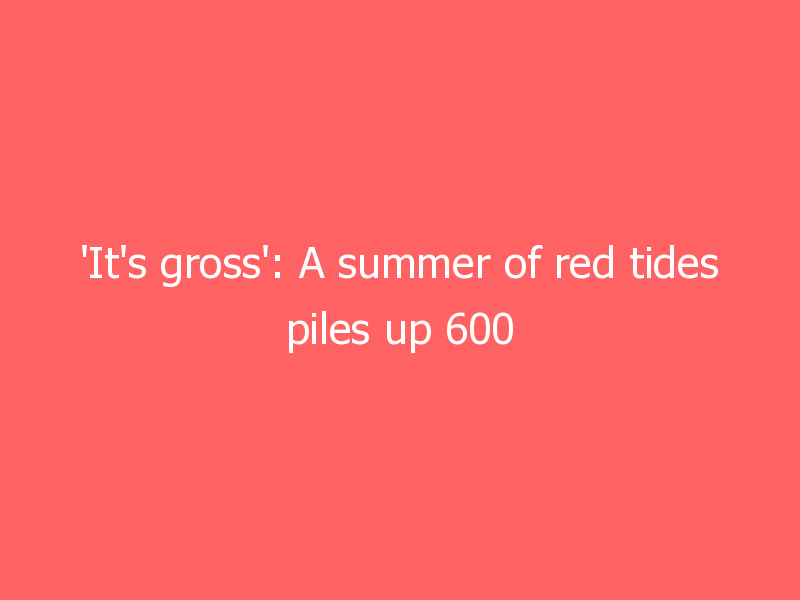Advertisement
Continue reading the main story
‘It’s gross’: A summer of red tides piles up 600 tons of dead fish on Florida beaches.
Dead fish from a red tide washed up along a waterfront park in St. Petersburg, Fla., this month.Credit…Arielle Bader/Tampa Bay Times, via Associated Press
By Elizabeth Djinis
July 21, 2021, 4:39 p.m. ET
COQUINA BEACH, Fla. — The stench hits first, uncomfortable at best and gag-inducing at worst. Then comes a small tickle in the back of the throat that won’t go away.
But it is the dead fish that are the real mark of a red tide. Wednesday on Coquina Beach, south of St. Petersburg, Fla., carcasses were scattered across the shore in small clumps.
“The smell, the dead fish, it’s gross,” said Angie Hampton, 54, who was on vacation from Indiana.
It’s been like that for much of the summer at beaches in the Tampa Bay region and across Southwest Florida, where the harmful algal blooms known as a red tide have killed more than 600 tons of marine life, according to local officials. Some of it was likely pushed ashore by Tropical Storm Elsa two weeks ago.
“This is unusual for Tampa Bay,” said Kate Hubbard, a research scientist with the Florida Fish and Wildlife Conservation Commission. “It’s been a long time since we’ve seen a bloom of this magnitude.”
Conditions have actually started to improve somewhat in recent days. A week ago, the bacteria in some parts of Tampa Bay were at 10 to 17 times the concentration considered “high,” according to reports from Pinellas County. Red tides at that level “can cause significant respiratory issues in people as well as fish kills,” officials said.
Algal blooms are a natural phenomenon, but both pollution and climate change appear to be making them worse. After leaks were detected this spring from a major wastewater reservoir at Piney Point, south of Tampa, scientists warned that a significant red tide could result.
And although it is difficult to attribute individual events to climate change, research at the University of Florida shows that warming oceans will likely make red tides more frequent and harmful. “This,” proclaimed an editorial in The Tampa Bay Times last week, “is what climate change smells like.”
Originally found on Read More








